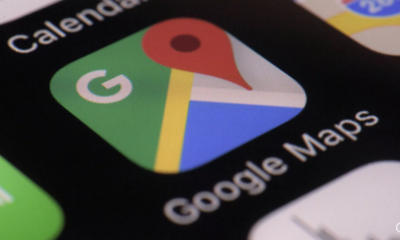Technology
Trump Downplays TikTok Security Concerns Despite Past Efforts to Ban the App
Former President Donald Trump on Wednesday dismissed national security concerns over TikTok, asking rhetorically, “Is it that important for China to be spying on young people? On young kids watching crazy videos?” His remarks mark a stark departure from his earlier attempts to ban the app during his presidency over fears of Chinese espionage.
In 2020, Trump signed an executive order to ban TikTok in the U.S., citing concerns that its Chinese parent company, ByteDance, could provide sensitive user data to Beijing. The order claimed TikTok’s data collection posed risks, including tracking government employees, blackmail, and corporate espionage. While the ban failed, concerns over TikTok’s potential misuse have persisted among U.S. lawmakers and security experts.
Evolving Security Concerns
Since Trump’s executive order, bipartisan support has grown for measures to curb TikTok’s influence. State and federal agencies, as well as the military, have restricted employees from downloading the app on work devices. In 2022, Congress passed legislation requiring ByteDance to sell TikTok to a non-Chinese owner or face a potential ban, a decision upheld by the Supreme Court on national security grounds.
Despite these measures, experts argue that banning TikTok or forcing a sale may not fully protect U.S. user data. Many websites and apps collect similar data—such as location, search history, and purchase patterns—which is readily available for purchase through data brokers. “The Chinese government can simply buy U.S. user data from data brokers,” said Eva Galperin, director of cybersecurity at the Electronic Frontier Foundation.
Additionally, China’s advanced cyber-espionage capabilities have enabled the country to target U.S. government networks and critical infrastructure, raising broader concerns about data security.
Algorithm Manipulation Fears
Beyond data collection, lawmakers worry about ByteDance’s ability to manipulate TikTok’s algorithm to spread Chinese propaganda or disinformation. Although TikTok has denied allegations of Beijing’s influence over its content, experts highlight that Chinese state actors have previously exploited U.S.-owned social media platforms to disseminate disinformation.
Trump’s Reversal and Proposed Solution
Trump’s recent comments suggest a shift in his stance. He floated the idea of a 50-50 joint U.S.-China ownership of TikTok, though it’s unclear if such an arrangement would satisfy security requirements outlined in the sale-or-ban law.
Some analysts speculate that Trump’s change of heart could stem from his personal use of the platform or perceptions that China’s global influence has diminished. However, others caution that China’s continued interest in accessing U.S. data and influencing public opinion remains a pressing concern.
TikTok’s Efforts to Address Concerns
TikTok has taken steps to address U.S. fears, including storing American user data on Oracle-owned servers and allowing third-party monitors to review its systems. However, experts remain skeptical about whether these measures can completely sever Beijing’s influence.
As the debate continues, the broader implications of data privacy, algorithmic control, and national security remain at the forefront of the TikTok controversy.
Technology
Calls for European Supergrid Intensify Amid Energy Crises and Climate Pressures

As Europe battles growing climate extremes, energy instability, and geopolitical pressures, momentum is building around a decades-old concept: the European supergrid. The idea, once considered aspirational, is regaining urgency amid widespread power outages and rising reliance on renewable energy.
The European Union is set to install 89 gigawatts of new renewable energy capacity in 2025, a 10-gigawatt increase from the previous year, most of it driven by solar projects. This expansion is central to the EU’s 2030 climate targets, which aim to cut net greenhouse gas emissions by at least 55 percent from 1990 levels. Yet as renewable penetration grows, so too does the need for a more integrated, resilient power network.
Recent blackouts in Spain and Portugal highlighted vulnerabilities in the continent’s energy systems, prompting experts to revisit the supergrid concept. A pan-European high-voltage grid could allow electricity generated from wind in the north or solar in the south to flow seamlessly across borders, balancing supply and demand.
“A supergrid would allow green energy to flow across borders efficiently, balancing supply and demand; it could smooth out energy highs and lows, cut prices, boost resilience, and help Europe ditch fossil fuels faster,” said Michael Ashley Schulman, CIO at Running Point Capital Advisors.
France, Germany, the UK, and Italy are already developing “mini-supergrids” — multi-terminal high-voltage DC (HVDC) networks. Over time, these could be linked like a motorway system, gradually forming a broader supergrid. Offshore grids are also gaining traction as a cost- and carbon-efficient way to integrate large-scale wind energy.
But building a Europe-wide grid is no simple task. Regulatory fragmentation, complex permitting across countries, and local opposition have slowed progress. “Stitching together dozens of national grids isn’t just an engineering project; it’s a political minefield,” Schulman noted.
Beyond logistics, some warn that the supergrid must reflect more than economic efficiency. “A supergrid must serve ecological integrity, social equity, and energy democracy — not just corporate interests,” said Therese Guttmann of Vienna’s Institute for Ecological Economics.
Critics argue that decentralised solutions and local energy systems should develop in parallel to avoid replacing one form of centralisation with another. Others caution against cybersecurity risks and systemic fragility, warning that overconnectivity could make the entire continent vulnerable to disruptions.
The European Commission estimates that €584 billion in grid investment is needed by 2030 to meet energy transition targets. While the supergrid could play a major role, analysts agree it must be part of a broader mix of infrastructure improvements and decentralised technologies.
As the continent continues to navigate a fragile energy landscape, the supergrid remains both a tantalising vision — and a test of Europe’s ability to act collectively.
Technology
Renewable Energy in Heating and Cooling: Europe’s Uneven Progress
As Europe continues to focus on energy security, especially in light of Russia’s invasion of Ukraine, renewable energy has become a key component in diversifying energy sources. The share of renewables in Europe’s overall energy use has been steadily rising, but progress in the heating and cooling sector varies significantly across the continent.
In 2023, renewables accounted for 26.2% of the EU’s heating and cooling energy, closely mirroring the overall share of renewables in total energy consumption. However, this figure masks wide disparities between countries. While Iceland leads the way with an impressive 84% of its heating and cooling needs met by renewables, countries like Ireland report just 8%. Sweden and Estonia are also among the top performers with renewable heating shares of 67%.
Several factors explain these differences, according to Professor Pawel Oclon from Cracow University of Technology. Climate conditions, resource availability, and the state of energy infrastructure all play a role. Additionally, countries with established district heating systems, such as those in the Nordic and Baltic regions, have a smoother transition to decarbonized heating solutions. These systems allow for the easier replacement of large, centralized boilers with renewable alternatives like heat pumps or biomass boilers, rather than needing to replace individual boilers across many households.
The Nordic countries, excluding Norway, dominate Europe in renewable heating. Nations such as Sweden, Finland, and Denmark boast renewable heating shares well above the EU average. Norway, however, lags at 34%, though experts suggest that this figure underrepresents the country’s reliance on renewable electricity for heating, given its vast hydropower and wind resources.
In contrast, many Western European nations have made slower progress. Among the EU’s four largest economies, only France (30%) exceeded the EU average in renewable heating, while countries like Germany (17%), Spain (21%), and Italy (22%) fell behind. These nations have traditionally relied on individual gas boilers, which complicates the transition to renewable heating systems.
Austria stands out in Central Europe, with 39.4% of its heating needs met by renewables, largely due to its longstanding use of biomass in both individual and district heating systems.
Despite some progress, experts warn that the pace is insufficient to meet the EU’s 2030 target of 49% renewable energy in buildings. “The growth is notable, but it’s far too slow to reach the EU’s climate and energy goals,” said Rana Adib, executive director of REN21, a global network promoting renewable energy.
To accelerate progress, experts call for increased investment in research and development to improve technologies like heat pumps, solar thermal collectors, and energy storage systems. Additionally, stronger policy focus, including support for electric heat pumps, decarbonized district heating, and solar thermal systems, is critical.
As Europe continues to reduce its dependence on Russian gas, the transition to renewable heating remains an essential part of the EU’s energy strategy, helping to ensure a more secure and sustainable future.
Technology
Netflix Series Sparks Debate Over Social Media Ban for Children
The popular Netflix series Adolescence has ignited fresh discussions on the dangers of social media and smartphones for children, with some calling for a ban. However, experts caution that prohibiting social media use may not effectively address the root of the problem.
A recent survey by Amnesty International revealed that 73% of Gen Z social media users in the UK (aged 13-28) have encountered misogynistic content online, with half witnessing such material weekly. The findings coincide with heightened scrutiny on social media following Adolescence, which depicts the fictional murder of a schoolgirl by a 13-year-old boy influenced by social media.
The show’s co-creator, Jack Thorne, has urged the UK government to ban smartphones for children under 16, mirroring Australia’s recent move to restrict social media access for minors. Despite these calls, experts argue that banning social media is not a viable solution.
A study published in Lancet Regional Health Europe—the first of its kind—analyzed the impact of school-based smartphone bans across England. The research found no significant improvement in students’ mental well-being, sleep, or educational outcomes. While the study only covered school-time restrictions, it casts doubt on the effectiveness of outright prohibitions.
Drew Benvie, founder of the social media campaign group Raise, warns that delaying social media exposure until age 16 may be counterproductive. “What happens when a child is 15 years and 364 days old? They suddenly gain unrestricted access without prior education on its dangers,” Benvie told Euronews Next. He also noted that children often bypass bans using VPNs, as seen with attempts to block TikTok in the United States.
Misogynistic content remains a significant concern. According to the Amnesty International report, 57% of Gen Z men in the UK have consumed content from controversial figures like Elon Musk, former U.S. President Donald Trump, and Andrew Tate. Tate, a prominent online figure, has been criticized for spreading misogynistic views, yet his content continues to circulate on major platforms.
Social media companies have implemented measures to protect children. TikTok introduced a mindfulness tool for users under 16 that activates after 10 p.m., while Meta and other platforms have strengthened parental controls. However, experts argue these steps are insufficient, as algorithms continue to amplify harmful content. A study by University College London and the University of Kent found a fourfold increase in misogynistic content suggested by TikTok’s algorithm within five days of monitoring.
Experts suggest that rather than bans, comprehensive education on digital literacy, misogyny, and misinformation is crucial. Benvie stresses that parental involvement is also key. “Parents should use these apps themselves to understand them and engage in open discussions with their children about harmful content,” he said.
While education plays a critical role, Benvie insists that tech companies and regulators must take stronger action. “Banning social media outright is not a practical solution,” he said. “Instead, we need regulation, education, and enforcement to ensure a safer digital environment for children.”
-

 Business1 year ago
Business1 year agoSaudi Arabia’s Model for Sustainable Aviation Practices
-

 Business1 year ago
Business1 year agoRecent Developments in Small Business Taxes
-

 Politics1 year ago
Politics1 year agoWho was Ebrahim Raisi and his status in Iranian Politics?
-

 Business11 months ago
Business11 months agoCarrectly: Revolutionizing Car Care in Chicago
-

 Business11 months ago
Business11 months agoSaudi Arabia: Foreign Direct Investment Rises by 5.6% in Q1
-

 Technology1 year ago
Technology1 year agoComparing Apple Vision Pro and Meta Quest 3
-

 Politics1 year ago
Politics1 year agoIndonesia and Malaysia Call for Israel’s Compliance with ICJ Ruling on Gaza Offensive
-

 Sports10 months ago
Sports10 months agoKeely Hodgkinson Wins Britain’s First Athletics Gold at Paris Olympics in 800m






























